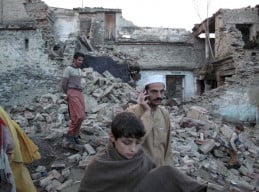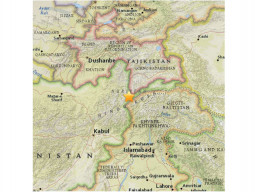
The deadly earthquake that struck northern Pakistan last month exposed the nation’s lack of preparedness and weak resilience to respond, cope with, and recover from natural disasters. It is ironic that a country that has been struck by at least 40 earthquakes since 1970 has still not been able to strengthen resilience to reduce disaster risk. The majority of our people lack awareness regarding what to do and what not to do in an event of a natural disaster. The public at large has still not been imparted something as basic as initial rescue training to reduce the risks posed by natural disasters. Hence, the risk posed by such events always increases due to the lack of effective response. This is true, not just for Pakistan, but also for other developing countries. For instance, at least 12 minor girls were killed and 35 others injured after a stampede broke out in their school in the Afghan province of Takhar following the earthquake. Similarly in Pakistan, schoolchildren, along with their teachers, rushed out of school buildings after the quake, triggering a stampede.
I have personally witnessed the unpreparedness and confusion of people when reacting to the deadly earthquake that struck Balochistan in 1997. People seemed to have completely lost their senses, with some jumping out of the first and second floors of residential buildings and suffering serious injuries. Some even resorted to firing into the air as the quake occurred around midnight and they assumed that their houses had been attacked. This gunfire created even more panic and fear.
Pakistan still lacks strategic direction and adequate infrastructure to handle disasters. Khyber-Pakhtunkhwa now faces a landslide that has cut off around 50 villages in Havelian. This is being blamed on the lack of preemptive measures taken in the aftermath of the October 26 earthquake. People of these villages will now face the biting cold weather as they wait for rescue and relief. The disaster management apparatus in Pakistan clearly lacks the capacity to give a strategic, rapid and preemptive response, transforming natural events into a human and economic disaster for the country.
Pakistan is located in a zone of heightened seismic hazards. Despite facing repeated natural disasters, the authorities have failed to shake out of their slumber to develop national strategies for risk reduction. The country’s disaster-related policies seem to have so far been focused on emergency response, which usually comes from the Pakistan Army. What comes from the political leadership in a post-disaster situation are merely statements and announcements of financial assistance for the affected people.
Natural disasters are unavoidable, but the damage they cause can be managed through effective policies. Such events shouldn’t have to result in huge human and economic losses, which only occur because they are not strategically, effectively and efficiently managed. There is a need to build a national legal and regulatory framework that could bring together the economic planning departments, provincial and local governments and civil society organisations. These should be tasked with first assessing inter-sectoral priorities, allocating separate budgets for disaster risk reduction and then formulating and implementing strategies for the same. The authorities should learn from the aftermath of the October 26 earthquake if they have not already learnt from the several natural disasters that the country has witnessed in the recent past. Undertaking adequate preparedness measures, development of efficient systems for disaster risk assessment, as well as information management and early warning systems are the need of the hour to save lives and livelihoods.
Published in The Express Tribune, November 24th, 2015.
Like Opinion & Editorial on Facebook, follow @ETOpEd on Twitter to receive all updates on all our daily pieces.




















































COMMENTS
Comments are moderated and generally will be posted if they are on-topic and not abusive.
For more information, please see our Comments FAQ